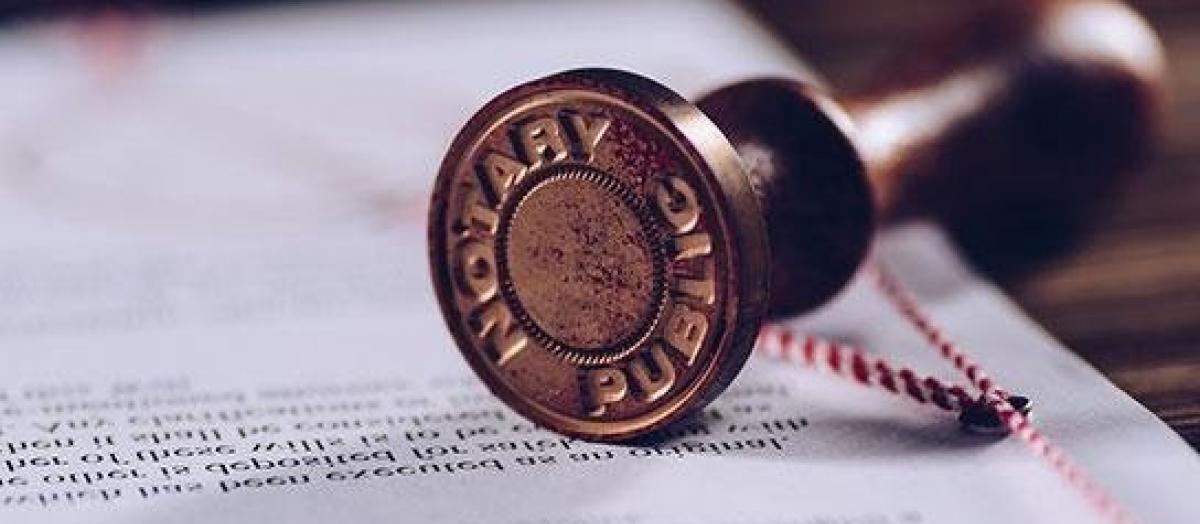Recognizing Apostille: Simplifying International File Legalization
Recognizing Apostille: Simplifying International File Legalization
Blog Article
Debunking Notarial Work: Simplifying the Role and Significance of Notaries
In the complex internet of legal documentation and confirmation, notaries stand as pillars of guarantee and authenticity. Their function, typically shrouded in secret for several, lugs substantial weight in making certain the validity and honesty of essential files. As guardians of legitimacy and reality, notaries play a crucial part in our culture, yet their job is not always fully recognized. By deciphering the intricacies bordering notarial techniques and shedding light on the importance of their acts, a clearer understanding emerges of the important role notaries play in supporting the textile of legal and contractual contracts.
The History of Notarial Job
Exactly how did notarial job advance in time to come to be an indispensable part of legal and service purchases? The history of notarial job go back to old worlds, where scribes played an essential function in tape-recording vital information and verifying files. As cultures advanced, the need for a more formalized system to guarantee the legitimacy of contracts developed. This caused the advancement of notaries, people appointed by the state to function as neutral witnesses in lawful issues.
Throughout the Center Ages, notaries gained prestige in Europe, with their features increasing to consist of drafting lawful files, certifying signatures, and preserving documents. The increase of global trade even more highlighted the importance of notarial job in verifying agreements and agreements throughout borders.
In the contemporary period, notaries continue to play an essential role in legal and organization transactions by validating identifications, validating the credibility of files, and stopping scams. Their function in accrediting the validity of agreements adds a layer of safety and security and depend the ever-evolving landscape of commerce and law.

Duties and Responsibilities of Notaries
Notaries play a vital duty in verifying the authenticity of records and the identification of signatories. One of their main obligations is to witness the finalizing of crucial files, such as contracts, wills, and acts, to ensure that all parties are getting in into contracts knowingly and willingly.
In addition, notaries are charged with administering oaths and affirmations, which are critical in lawful procedures and the execution of affidavits. They certify duplicates of initial documents, offering assurance to establishments that the copies hold true reproductions of the originals. Notaries have to preserve precise records of all purchases they supervise to guarantee transparency and accountability. In general, the obligations and responsibilities of notaries are necessary in safeguarding the stability and legitimacy of different files and purchases.
Notarial Certificates and Signatures
Exemplifying meticulous interest to information, notarial certifications and trademarks function as vital parts in verifying the authenticity of lawful papers. Notarial certifications typically have crucial information such as the day of registration, the names of the notaries, a summary of the record, and the notary's main seal. These certificates supply a clear document of the notarial act, guaranteeing that the file can be quickly determined and traced back to the notary who oversaw the process.
Signatures play a critical duty in notarial job, as they indicate the contract and permission of the parties Read Full Article entailed. Notaries meticulously witness the finalizing of documents to verify the identification of the signatories and confirm that they are authorizing of their own free will. By attaching their official seal and signature to the record, notaries certify that the necessary treatments have actually been adhered to and that the paper is legitimate and enforceable.
Essentially, notarial certificates and signatures are the trademark of authenticity in lawful deals, supplying guarantee to all celebrations included that the files are legitimate and binding.
Relevance of Notarial Acts

Notarization Process Discussed
The notarization process typically starts with the private providing the record to a notary public. When the identification is validated, the notary makes sure that the individual authorizing read review the record does so voluntarily and without any type of browbeating.

Final Thought

Notarial certificates usually contain vital details such as the day of notarization, the names of the signatories, a summary of the document, and the notary's main seal. These certificates offer a clear record of the notarial act, making certain that the record can be quickly identified and mapped back to the notary that managed the procedure.
By affixing their official seal and signature to the file, notaries accredit that the required procedures have actually been adhered to and that the paper is enforceable and valid.
By validating the identity of the notaries, validating their desire to enter into the agreement, and licensing the date and place of the signing, notaries play a vital duty in the original source maintaining the validity of lawful records.After the record is authorized, the notary will certainly affix their official seal or stamp onto the record.
Report this page